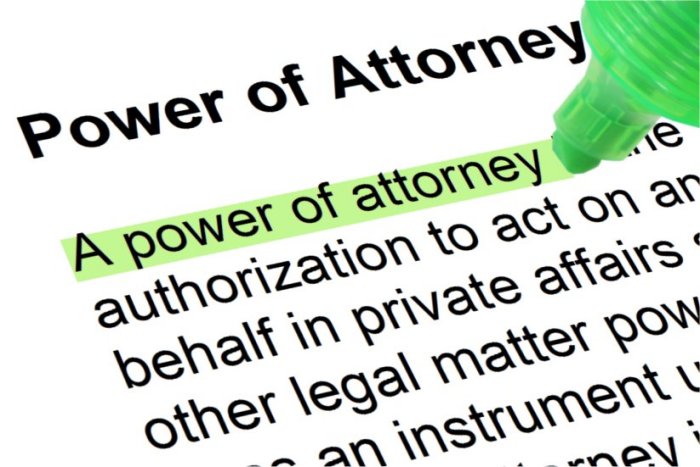BY SAM RYALL
Whether you are planning that ‘dream’ overseas holiday, have a loved one who is losing capacity to make decisions on their own or you are in need of your own ‘peace of mind’, it is important you consider the benefits of obtaining a valid and correctly executed power of attorney.
A power of attorney is a legally binding document in which a person (‘the principal’) appoints another person(s) (‘the attorney(s)’) to act on their behalf in making decisions with third parties. The decisions an attorney can make can be either personal (i.e. relating to the care and well-being of the principal such as medical treatment, living arrangements etc) or financial (i.e. selling property, paying bills or administering the principal’s income/bank accounts).
In Queensland, powers of attorney are governed by the provisions of the Powers of Attorney Act 1998 (Qld), specifically Chapter 2 and Chapter 3. Broadly speaking, there are two types of power of attorney: a ‘general power of attorney‘ or an ‘enduring power of attorney’.
- A ‘general power of attorney’ involves the principal appointing an attorney to make financial/personal decisions for a specific time frame (i.e. the principal can elect for the power of attorney to commence immediately or on a certain date/occasion). A common example of where a general power of attorney would be applicable is where the principal may be travelling overseas for a short period and need the attorney to sell property on their behalf, sign legal documentation (such as the Contract of Sale or transfer documentation) and (or) pay any rates/water/electricity or other outstanding accounts. The power of attorney is valid whilst the principal has capacity (a formal term for the ability to make decisions of your own violation) and ceases upon that principal losing capacity.
- An ‘enduring power of attorney’ follows the same procedure as a general power of attorney but has a key difference. With an enduring power of attorney, the principal can appoint an attorney to make financial decisions (either immediately or upon a certain event such as the principal losing capacity) and personal decisions (commencing on the person losing capacity). However, unlike a general power of attorney, these decision making powers ‘endure’ or continue beyond the principal losing capacity.
So you may ask, why register a power of attorney?
Whilst there is no obligation to register a power of attorney, you will be required to register the document with the Department of Natural Resources and Mines (‘DNRM’) should it be used to make decisions about land transactions involving the principal (such as selling, leasing, assigning or transferring property).
A general power of attorney can be registered on the Powers of Attorney Register provided it complies with Section 161 and Section 162 of the Land Title Act 1994 (Qld) (in relation to execution and witnessing of documentation) and does not explicitly exclude the attorney from dealing with the principal’s property. An enduring power of attorney can also be registered on the Power of Attorney Register if it provides for the attorney to make financial decisions on the principal’s behalf and also does not explicitly exclude the attorney from dealing with the principal’s property.
The registration process is relatively straightforward and can be completed ‘over the counter’. The process involves the following steps:
- A person (can be the principal, attorney or the solicitor acting for the principal or attorney) lodging the original and fully executed power of attorney with DNRM; and
- The drafting of a request to register a power of attorney on the power of attorney register (‘Form 16’). This form is to accompany the lodgement of the power of attorney and is to be signed by the person making the request such as the attorney, the principal or the solicitor for the principal or attorney; and
- Making payment of the sum of $169.00 as the prescribed registration fee (which may be subject to change annually); and
- Ensuring the power of attorney is adhered with an official DNRM sticker indicating a 9 digit ‘dealing number’.
Whilst the entire process can be completed without legal advice, there is always the possibility of error, such as incorrect witnessing/execution or drafting ambiguity as to when the power of attorney is to commence. For convenience and ensuring your power of attorney is correctly drafted (and/or registered) we strongly recommend you obtain legal advice from one of our friendly solicitors at our Kelvin Grove or Wilston office. We would be more than happy to advise you of your rights and obligations in respect of your power of attorney.



